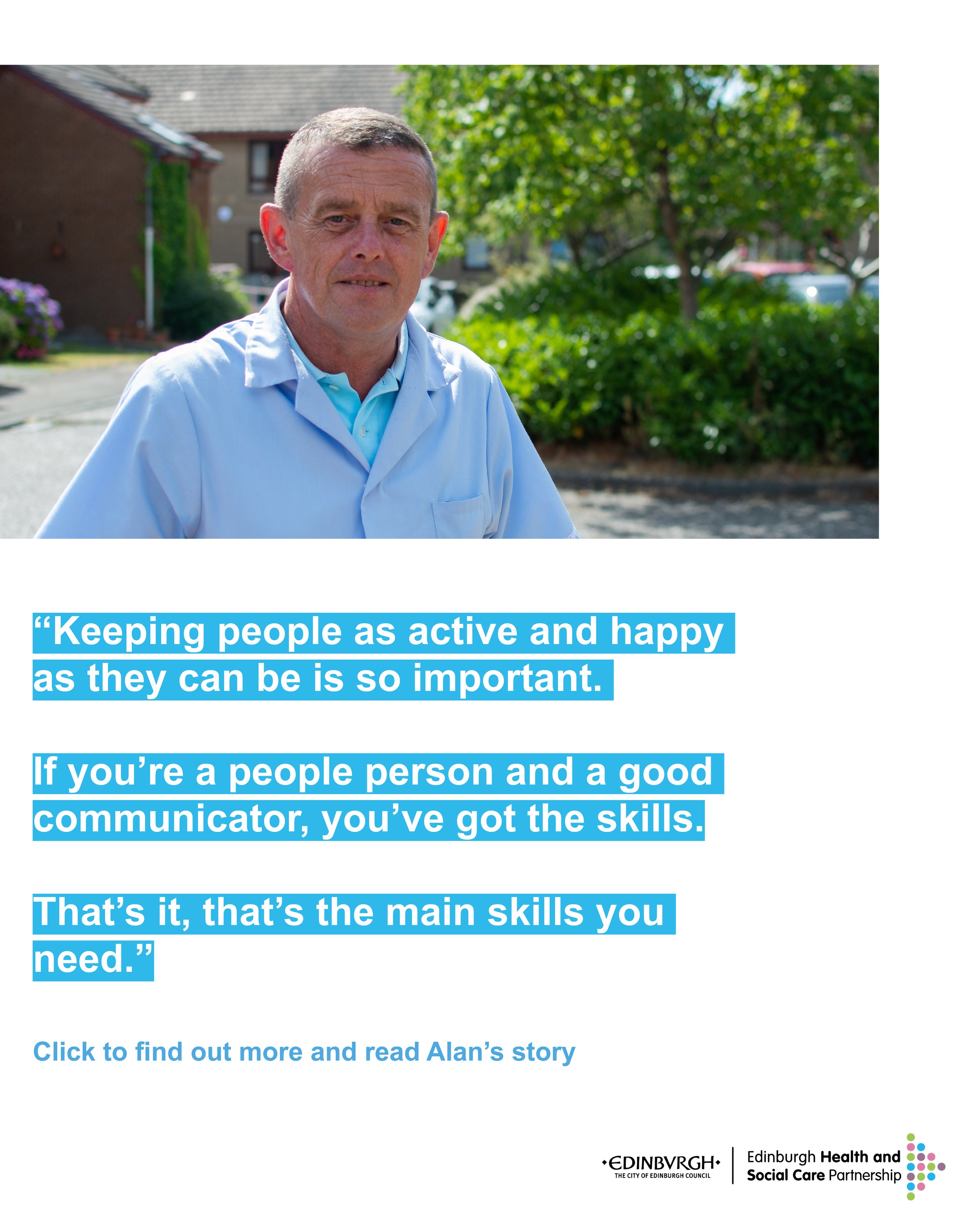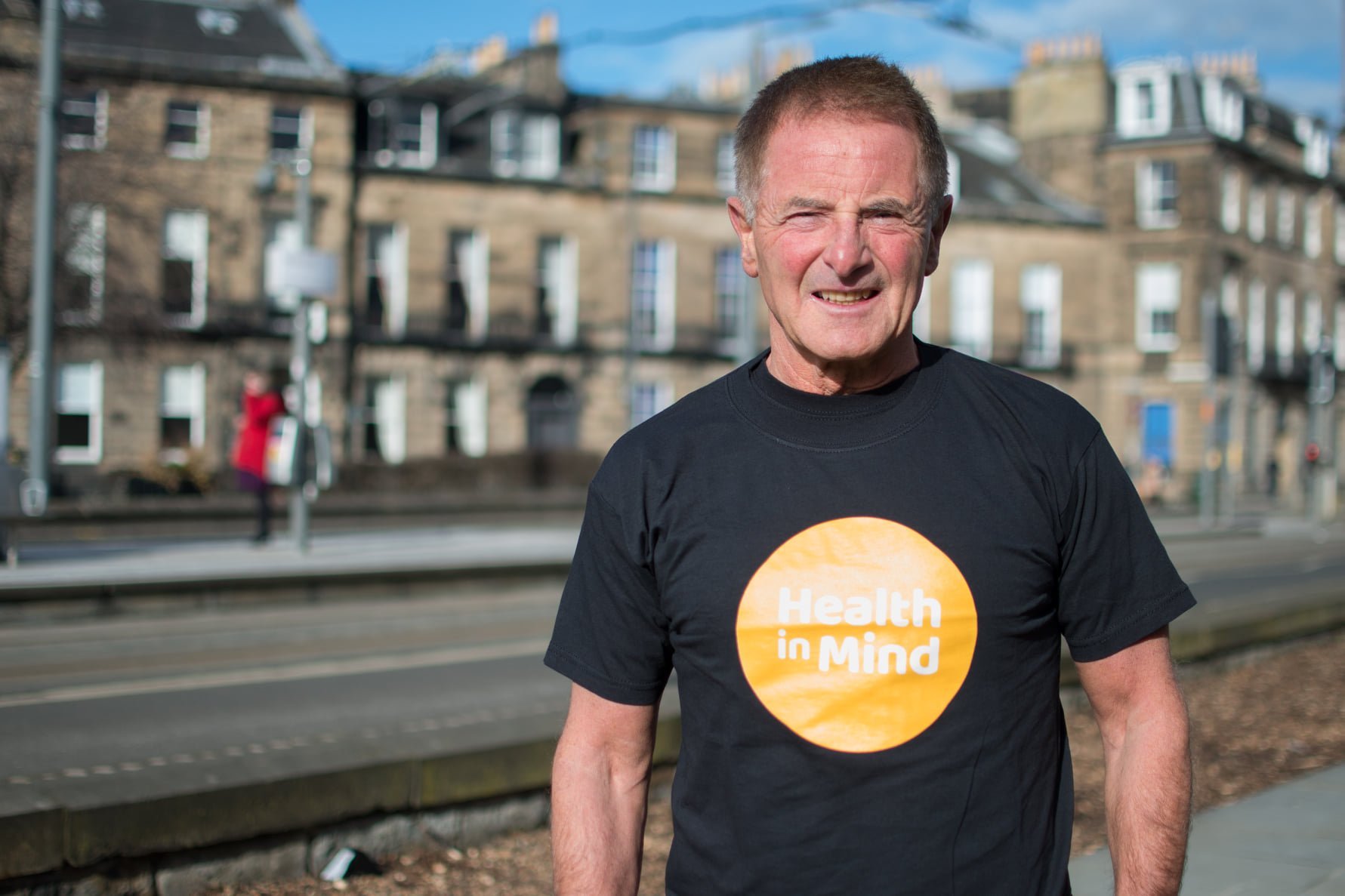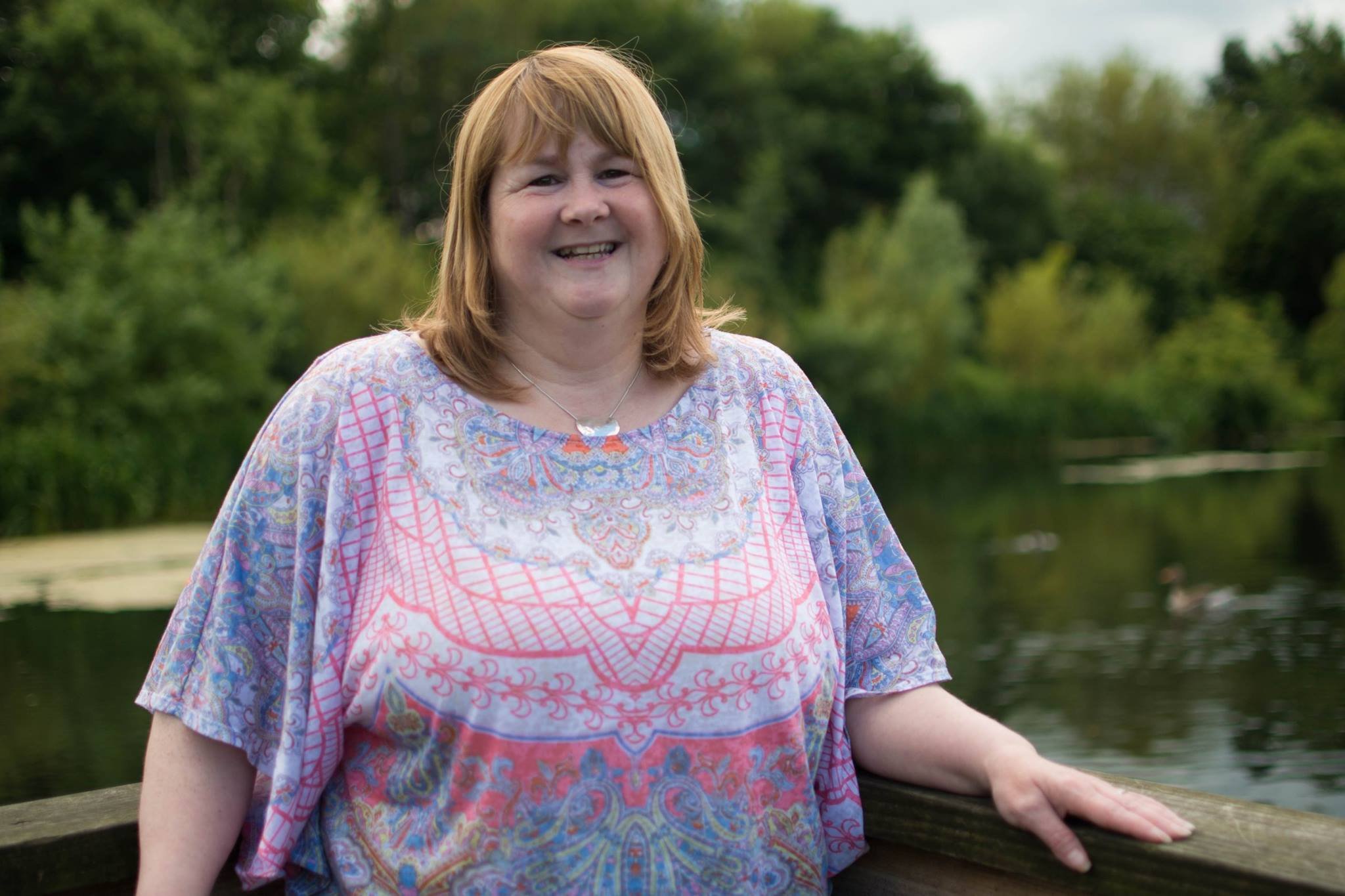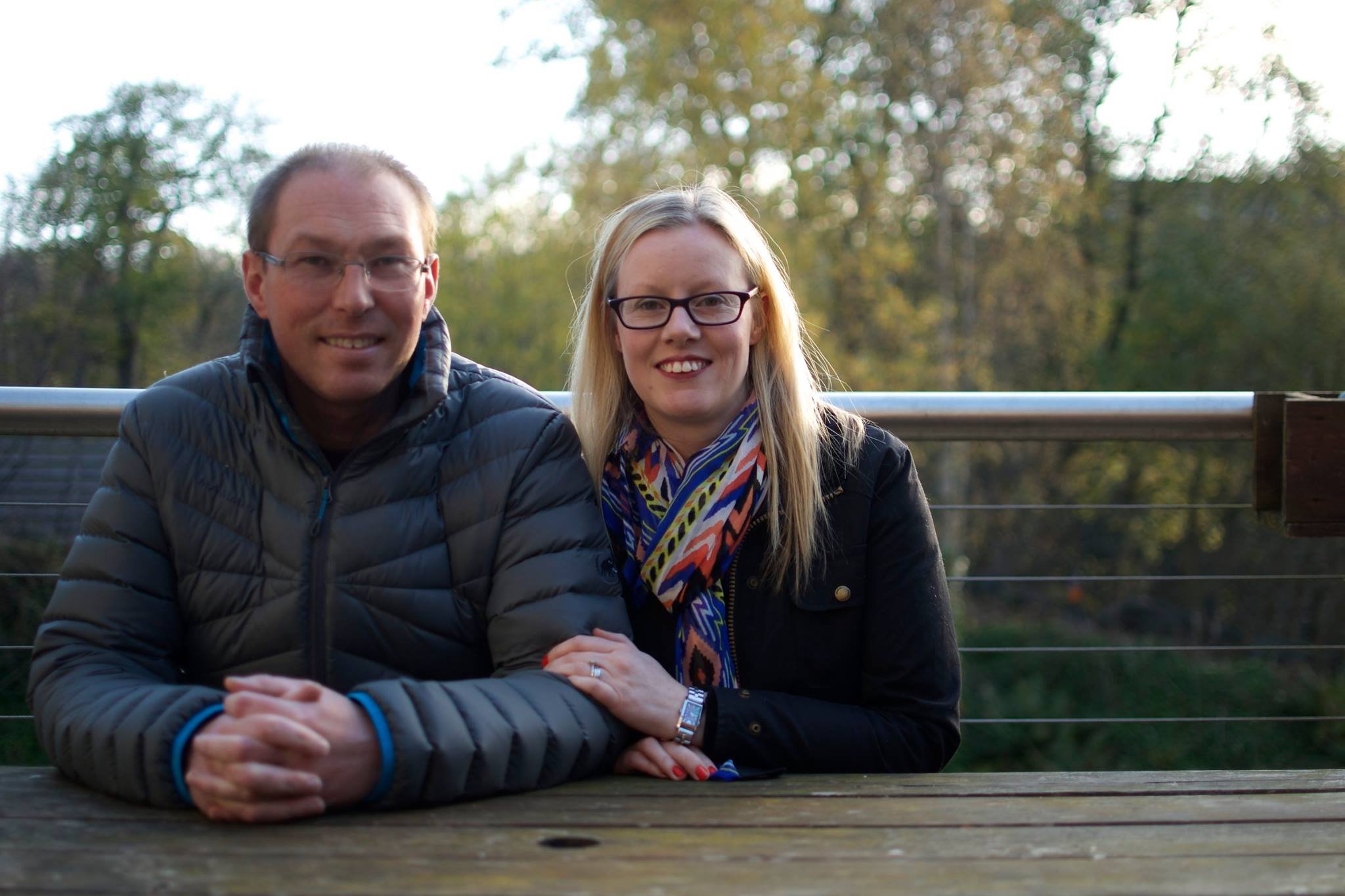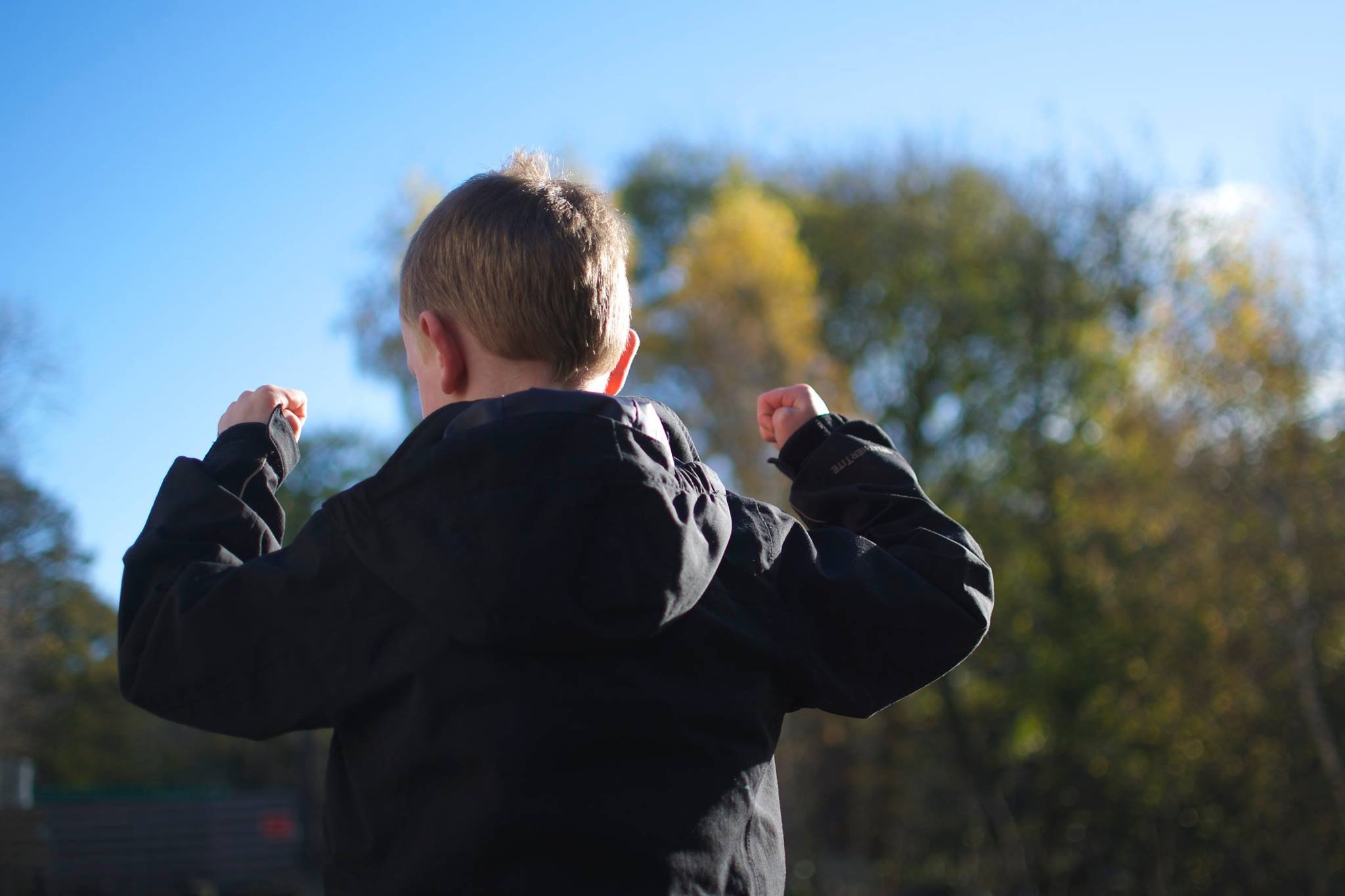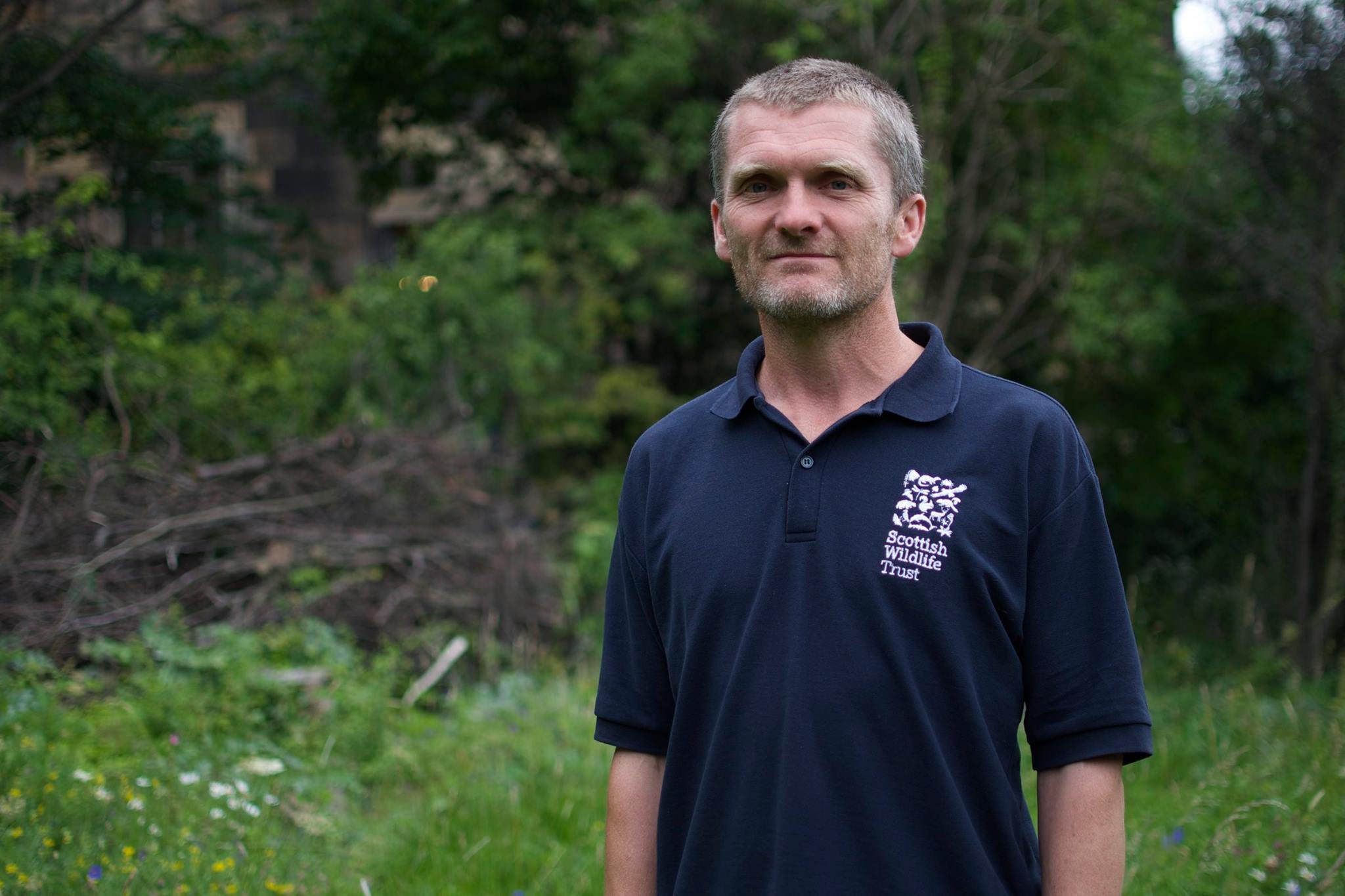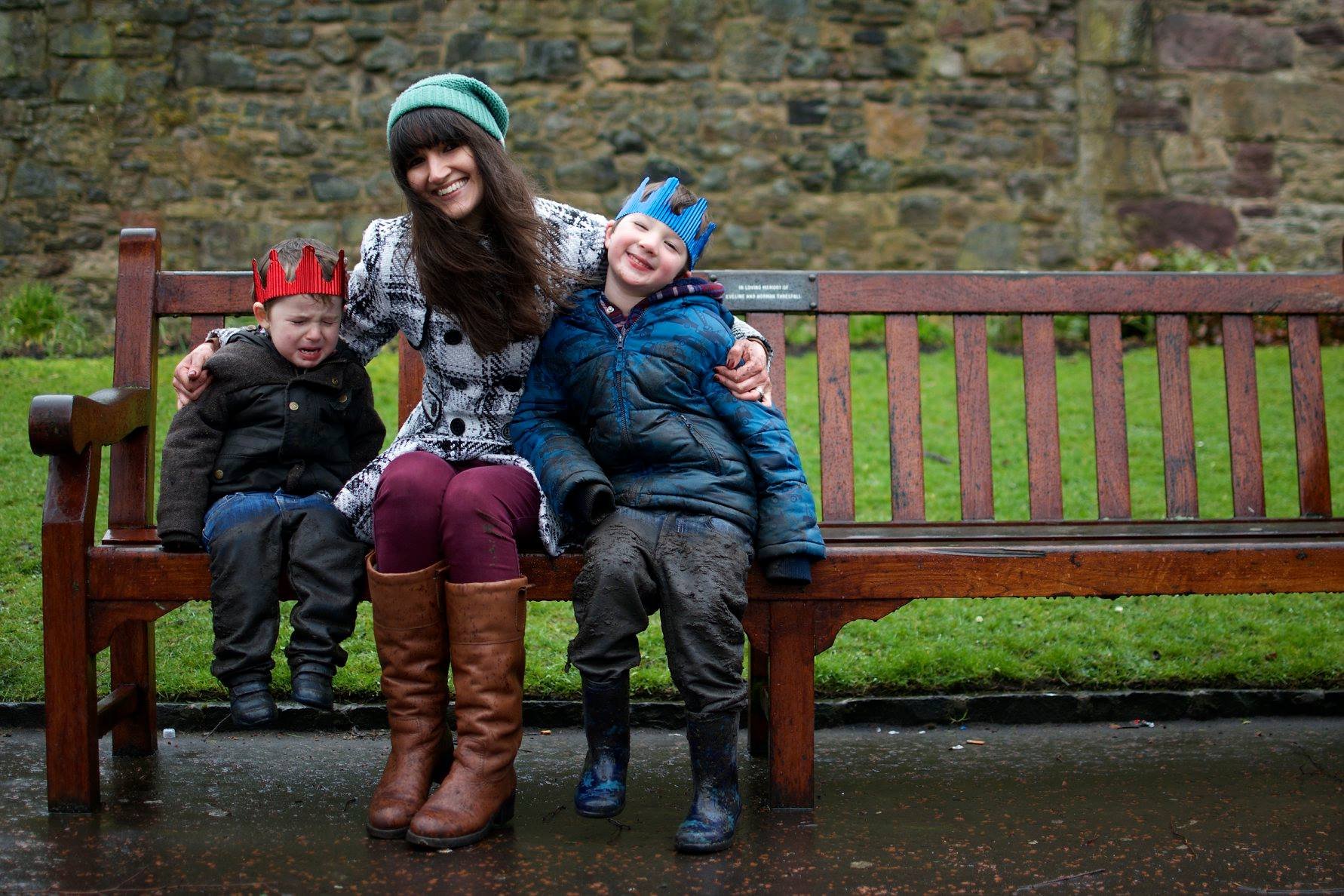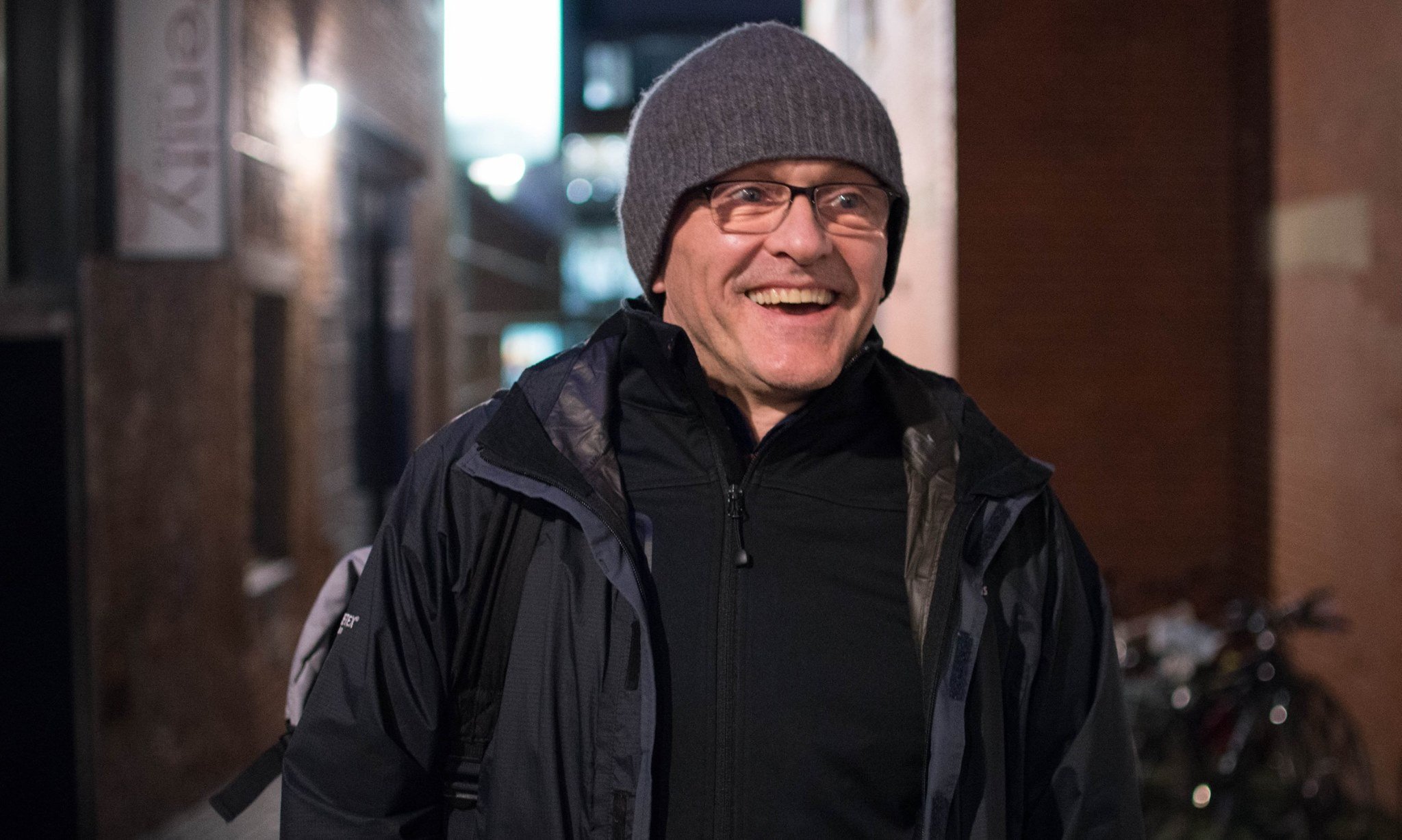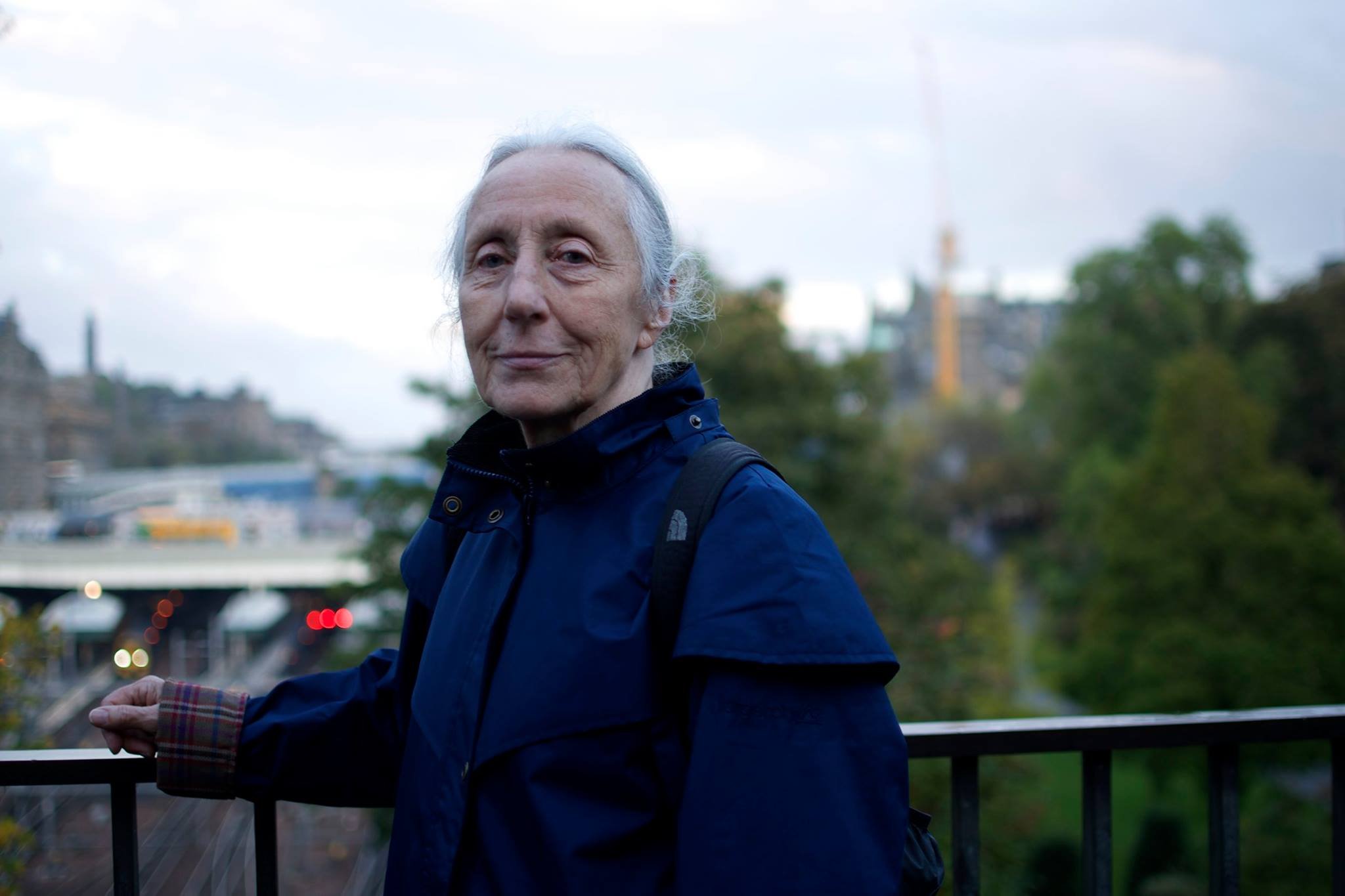Our Work
Selection & highlights of content and campaigns created for brilliant organisations
Edinburgh Health & Social Care Partnership
Portraits, interviews & design content created to highlight the work of a carer
Grassmarket Community Project
Portraits and interviews with members of the Grassmarket Community Project. Conversation focused on the power of volunteering, and the huge positive impact that it can have.
“I heard about the community online and it seemed like a really lovely, holistic venture with so many activities for people to do, for people to get involved with. I love seeing the same people every week, it’s really nice to watch people getting more confident. I do the reading and writing group. I am a history student, a lot of reading and writing, so I thought I’d be best suited with this group. It’s completely non hierarchical, there’s a very palpable mutual acceptance, and everybody really gets on, and really wants to be here. It’s been lovely to watch one or two people in particular just come on leaps and bounds in their relationship with books.’
Health In Mind
This campaign focused on highlighting the Health in Mind community. We met and interviewed 15 individuals. Content and interviews covered all aspects of the work done by Health in Mind. Our focus was to create content highlighting the power of community and human relationships.
‘I volunteer with the befriending service for Health in MindHealth in Mind is very caring. They are caring, and compassionate. I believe they do the best they can to help people in many different ways, through the many services they offer.
At work it can feel you are working in a bubble. You think everything is okay with colleagues and business partners, you have no awareness of the mental health issues that may be affecting them. Volunteering with Health in Mind has opened my eyes up to how common this is and given me greater insight so hopefully I may be able to offer my support to a colleague or friend in future.
The courses and support Health in Mind offer have been really beneficial to me as a person. As a volunteer, I feel like it’s a win/win situation. I feel I’m helping the community a bit by what I do, but also it has broadened my outlook and given me a new awareness.’
The Yard
‘Play’ is the title of our film & campaign created for The Yard. We aimed to translate the experience of a child visiting The Yard in all content created.
‘The Yard is a key, key place in our lives because my son suffers from real terrifying anxiety, and this is the only place that he will come to. He won’t do any other activities, he won’t go anywhere else. He can just about, with some support, go to school, but he wont go to any clubs or anything. He won’t go swimming, he won’t do anything. The Yard is key, really, so important. He comes here, and he loves it.
The staff are amazing, they’re his friends, he feels really secure. It’s just a lovely environment.
The staff are amazing, they are just brilliant. They are just lovely. To be somewhere that he loves, and to see him enjoy himself, and make friends and feel relaxed, it’s really special.’
Adoption Scotland
Our campaign was published during Adoption Week. Our goal was to create content and tell stories that highlighted how much the adoption process has improved in recent years, and to challenge and stigmas surrounding adoption.
“I’m adopted, and I think I was about 5 when I first knew what it meant to be adopted. I’m going into p6 now. I used to talk about it lots more with my friends but I don’t as much anymore. Somebody at school asked me if I was in a care home, I think people think that I’m like Annie! I want people to know that adoption is good, because everybody needs to be loved.”
Scottish Wildlife Trust, Edinburgh Living Landscape
Our campaign was created to support the #PollinatorPledge created by Scottish Wildlife Trust and Edinburgh Living Landscape. Our goal was to create content and tell stories that raised awareness of Edinburgh green spaces and their importance to our pollinators, and to us.
“I’m here, listening to the bees, as a member of Edinburgh Living Landscape. Together, we were asked what we could do to help insects thrive in the city & this is my pet urban pollinator project. In summary, this is Dr Tim Duffy’s meadow for The Meadows! The first actual meadow here in the meadows for over 100 years! I’m often working here when people come by and everybody is very kind & positive.
The big challenge here is to keep a balance between the pretty flowers and the grasses. Butterflies need grasses to lay their eggs on and people need pretty flowers to look at!
It’s been such a success that the council have allowed us to double the size of it. The council have also started this relaxed grass cutting next to the meadow, so everything over there hasn’t been cut this year & they won’t. Previously, they’d cut regularly throughout summer. Sadly half my meadow was cut by accident! The poor guy who did it was harassed by a local into ‘tidying it up!'”
Individual stories; stories collected with humans who are passionate about their work and organisation
“My daughter and I emigrated here, first to London, in 2016. Right after that I went back to the Philippines, and my then daughter was transferred here, to Edinburgh. She told me, ‘Mom, it’s nice, really, to live here, and I want you to come here’. London life is quite busy, a busy city, and it’s good but I think it is more for young people to live there, so I told myself, ‘why not’, to Edinburgh. So, I tried coming here April of 2017, and there was an opening here, at a chocolate factory! My daughter told me, ‘Mom, there’s an opening at a chocolate factory’, but I told her, I had no experience in a chocolate factory, all my life! Because, I have been working in a bank for 20 years back in the Philippines.
Afterwards, my daughter told me, ‘Ok Mom, so, we will apply?’, and I said, ‘yeah, yeah! Sure! I want to apply!’ I got an email, about the interview, in the first week of April, the 6th, of 2017. I was so excited! But you know, a little bit nervous, because I didn’t know about chocolate!
So, I knocked on the door of our old factory in Leith. Oh my god, so I just prayed, and I said, ‘God, I leave you, this thing, in your hands!’ These two amazing people opened the door, honestly, I told them, I have no idea about chocolate, I just know how to eat chocolate! I don’t know anything about it, they said, ‘Don’t worry about it Wilma, we are going to train you!’
I told myself, Oh my god, Edinburgh really gave me the biggest opportunity in my life. The biggest career change in my life, actually, a new career path. Knowing nothing about chocolate, and being a chocolatier, and doing everything from bean to bar, different chocolates, different beans. I know now, it is really amazing. So, I really want to stay, the rest of my life, with Ocelot Chocolate. That is why I keep on telling everybody that I know, that I got a good company.”
“I was qualified for 25 years now, and I have lived in Scotland for 17 years, since 2004. Initially, I think it was my Mum, she picked up that, I had a talent or I don’t know, to look after people. She kind of advised me to try maybe that, I was 15 when I started nursing school. I tried it, and I felt it was OK, and here I am, 25 years later.
There is a challenge every day, despite that working in a hospice, it’s actually pretty rewarding. In this place, like no other, people are honest, more open, for obvious reasons, they are in a specific point in their life.
The conversations, endless conversations, especially if you are doing nightshift, you very often have the chance to speak with someone and there will be conversations about their attitude towards dying, often I think how brave they are, how they embrace their situation. Of course there are people who maybe don’t manage, but that helps me to help someone else, because it is difficult, to accept that we are ill, we are unwell, and we will die, and the same about our parents, or spouses, or relatives.
It does make people more open, they do naturally seek for some kind of, I don’t know, closure? That prompts people to try and renew the contacts that have been broken, with people who have been estranged. There are a lot of different dynamics and situations, you need to be very delicate and sensitive to help people.
This is the big question, what is important for people in these last days of their life? For some people, and for most of the people, it will be no pain, no distress, but for a lot of people there is a lot of anxiety and fear connected to, have I done everything? Sometimes you just need to explore that with them. Some people are just completely- they don’t want to talk about it, but we still talk, we try to have a holistic approach.
The biggest lesson I have learned here is to keep listening to people. The medicine is changing, and the way we are doing things is changing, but people are not changing, and you need to make sure that it is about them, so that is the big lesson to people, from my job.
For a long time I thought, I am a man so I shouldn’t cry, but no, recently I fixed that, I was pushing and pretending everything was fine, and one day eventually everything cracked, so I know now that I need to talk about things. We have got good people around here, if something is difficult, we will talk to our colleagues and try to help each other, because we are just humans as well, it’s heartbreaking sometimes. I am a nurse in here, I know the difference, because with my family I would probably struggle to help, because I would be too emotional. I try to control my emotions, but as I said I realised that actually no, I need to express my emotions, of course I don’t cry in front of the patients.”
“I lived on an old double decker bus for about 15 years. It was great. We used to just go about Scotland & England, staying in different places. I had big dreadlocks, I had a lot of good experiences, we went to a lot of festivals, did a lot of partying. I was also an alcoholic & an addict, but I didn’t think so much about it then, it was just how life was, how we lived. Most of it was up, a good time.
I was with a girl at the time. We were both addicts, on heroin. She wanted to keep doing drugs- I didn’t. We broke up, and I was homeless in Edinburgh.
I then met Josh, who owns Social Bite when I was homeless. I started to hand out fliers for him, to let people know about Social Bite & what they’re doing. Josh then got me in to clean up in the kitchen, after he said he could trust me. Gradually I did more, & now I work full time as a chef. I am doing some more training at the moment. It’s incredible, it’s got my life completely back on track. I’m not sure where I’d be if it wasn’t for Social Bite.”
"I was 23, and Harry was 25. We'd been going out for three years. He had been having seizures, but he didn't know they were seizures. They didn't make him fall on the floor or anything. They were focal seizures, and he thought they were panic attacks. He had headaches. It took a number of months to be diagnosed. The consultant phoned him when he was on a sailing trip to tell him that he had a brain tumour. I think because he had waited so long for the MRI, and because it was serious, they wanted to treat him immediately.
He told me he wouldn't blame me if I didn’t stand by him through it, but I loved him. We'd been together for 3 years. In the moment it was like, ‘No, of course I'm going to stand by you.’ Life kind of went back to normal, and we got engaged, and married, and had our first child, but then the tumour came back. We always knew it'd come back, but you just don't want to believe it. He's done really well, in terms of life expectancy. He's already surpassed it. The doctors are pleased with what he's achieved, considering he was diagnosed so early in life.
We had a timescale, I did things young because we felt like we couldn't wait, and I'm glad that we did it the way we did. Lots of the mums in the playground are older than me. My husband knows he's going to have a short life, but he's leaving the boys behind, and that's kind of as good as it gets. It’s comforting for him, and an amazing legacy.
I always wanted to write a book. I wrote this book, 'My Daddy Is My Superhero,' because I wanted something tangible to be able to have for my children, to help them through their dad’s illness, to help them understand what will eventually happen, but also, mostly, to help them celebrate his life and commemorate him, remembering all the things they did together and all the ways he’ll live on through things they continue to do as they grow up.
I do think about the after – writing the book helped me think about the after. Now, I think it helps me to think about this as an amazing chapter of my life.
I feel I can face what's to come. I feel a little more prepared, and a little less scared now." (1/3)
"We're up in Scotland filming Trainspotting 2 just now. I think what I love most about what I do is the variety, and being able to do something new every day. I get to meet such amazing people all the time. I think everyone's fear is doing something a robot can do, and getting stuck doing something repetitive. I feel very fortunate and grateful to be able to make films, and to be able to always have a choice in what I do. Coming back to Edinburgh has actually been really fascinating, since filming the first Trainspotting Edinburgh has changed dramatically. You can see the gentrification massively in the city."
"I moved to Edinburgh from Shrewsbury, to study at Edinburgh University. I've been here since. I studied Mathematics & Computer Sciences. I was an engineer. We worked with big computers that were held inside huge cabinets, with big valves.
It wasn't a thing we thought about, that I was a woman, when we were at a conference and it would be 70 men & 4 women. We never thought of it like that, we thought of it as equal- we were all there to learn the same things.
I have always been interested in machines, and how things work. I remember my Father and God Father would take me out in their cars, and I'd always want to look under the bonnet and see how it worked. I was always playing with little cars, and machines."
"I'm so happy because Hibs won the cup today."


